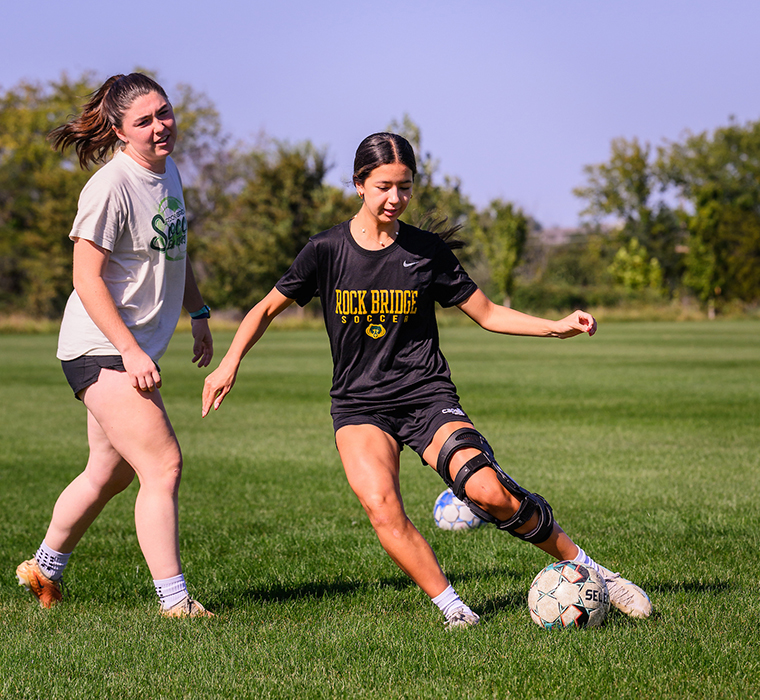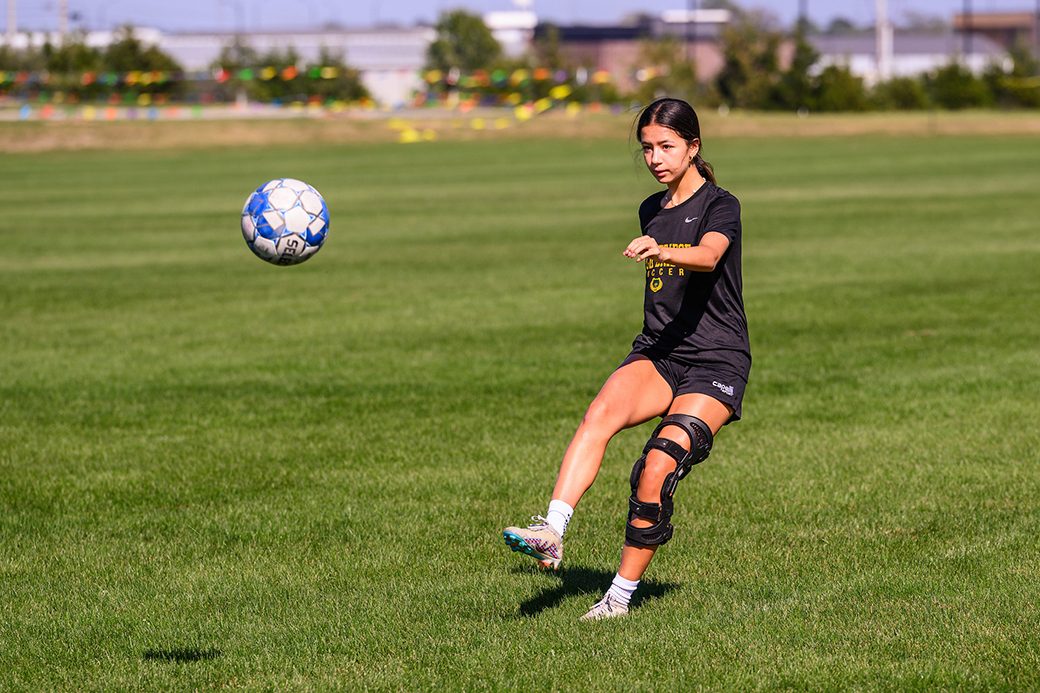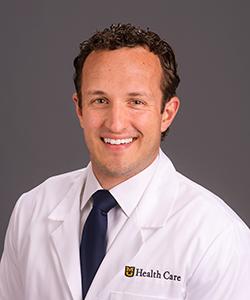In many of Lia Metz’s earliest memories, there’s a soccer ball involved.
“I’ve been playing as long as I can remember,” she said. “Since I was three, so 13 years now.”
It’s a family affair: Her dad, Michael, played competitively in college and continues recreationally in pickup leagues around Columbia. It started with him, Lia and her brother Donovan walking to the park to have something to do together.
For years, it meant many drives to St. Louis for practices and lots of time on the road for competitive tournaments. Lia would carpool when she could, but often it was just her and her dad or mom, passing the time on long drives with homework, listening to music together — SZA, Drake, Frank Ocean — and talking.
“She’s never identified as just a soccer player,” Mike said. “But she has been good at it, she’s been an amazing player since she was little, and the social aspect of the sport and having soccer be this thing she can always fall back on and have confidence in has been great for her.”
A practiced midfielder who looks up to U.S. women’s national team forward Christen Press, Lia relishes the competitiveness and physicality, the sound of a cleat cleanly striking a ball and the crinkling whisper of that ball meeting the goal net, the celebration that follows. It’s also just fun to hang out with friends.
That’s what she was doing in November of 2023, outside of girls’ high school soccer season in Missouri, when she got injured playing in a student council fundraiser flag football game at Rock Bridge High School.
“I remember getting thrown the ball, and I caught it and turned around,” Lia said. “There was a girl in front of me, so I went to fake her out, and then my leg just gave in, and I crumpled to the ground.”
Lia was helped off the field, in tears not because of the pain but because she was sure she had torn her anterior cruciate ligament (ACL), the main piece of connective tissue that stabilizes the knee joint and enables movements like changing direction. She had seen teammates go down in the same way and felt the same characteristic popping sensation they described.
Her parents had been at the game but left to watch Donovan’s high school team play a game at Hickman High School. They rushed back as their phones started ringing nonstop.
“Lia’s been hurt lots before in lots of small ways,” Mike said. “She'll go down, but she always pops back up. This time it was clear she wasn't popping back up.”

Though the injury was crushing for Lia in the moment and days after, the local soccer community was ready to help her, starting with the moment she went down.
Her trainer recommended she go to MU Health Care’s walk-in sports medicine injury clinic the next morning. There, sports medicine expert Aaron Gray, MD ordered an MRI of her knee. A few days later, she met with Dr. Gray and orthopaedic surgeon Clayton Nuelle, MD, to go over her results and talk about treatment options.
“I was dreading getting the results of my MRI back because I was thinking my soccer career was over,” Lia said. “But Dr. Gray had great energy when he came in even though it was really early and made it feel like it wasn’t such a dreadful thing that I was hurt. And meeting Dr. Nuelle, I knew right away he was a great doctor because he made it very clear that he wanted what was best for me and cared about my process.”
Lia got world-class care, starting with her initial evaluation. As the team physicians for the Mizzou women’s soccer team, Dr. Gray and Dr. Nuelle are both very experienced in diagnosing, treating and overseeing rehabilitation programs to help high-level soccer players recover from all kinds of injuries.
“Knowing that these doctors take care of the Mizzou women's soccer team was a real comfort for us in thinking about our own young woman who plays soccer,” Mike said. "We felt at home knowing that they were going to be helping through this whole surgery and process of rehabilitation. We were in good hands. We were with good people who knew what they were doing.”
Lia’s MRI showed that she had also torn both menisci, the knee’s natural shock absorbers. Dr. Gray and Dr. Nuelle asked her to rest until her swelling went down, then with the help of physical therapists Casey Hairston and Kasey Currence, had her do presurgical exercises to keep her muscles from weakening.
Teen girls, particularly high school soccer and basketball players, face the highest risk of ACL injuries.
“What’s unique in Lia’s case is the number of people involved in her care who have a lot of experience in general, but certainly with women's soccer players in particular,” Dr. Nuelle said. “And she saw all of those people in very short order. Having a place like the Missouri Orthopaedic Institute in our community is a really powerful resource for athletes, or anyone who has a sports medicine injury.”
Within three weeks of her diagnosis, Dr. Nuelle performed a surgical reconstruction of Lia's torn ACL using a section of her quadriceps tendon, a well-studied approach to helping athletes who play quad-dominant sports like soccer recover.
A few days after surgery, she started her rehabilitation program, which included blood flow restriction therapy. This innovative therapy treatment helps keep muscle tissue active without putting stress on a recovering joint by taking away some blood flow to the area using an inflatable collar similar to a blood pressure cuff.
“Blood flow restriction therapy is a really valuable therapy tool that we use,” Dr. Nuelle said. “We want to activate the muscles above and below the joint so that they don't get smaller. Blood flow restriction allows us to activate those muscles without putting too much pressure on a recently repaired knee.”
The therapy was a little uncomfortable for Lia at first, but she trusted she and her care team had the same goal in mind — getting her back on the pitch — and stuck to the entire rehabilitation program.
“The recovery process was just so smooth,” Lia said. “Everyone was in contact with each other, so it just made it so much easier. They even involved my trainer at school so I could work with him before classes as part of my regular schedule.”
Six months after surgery, Lia no longer had to wear her knee brace. After months of not going to practice, and not knowing what to do with all of that extra time, she jumped right back into the flow with her competitive club travel team.
Now, she and her high school teammates are gearing up for the spring season, and Lia is ready to get back on the field with no limitations.
“We are very happy with the care that Lia received throughout this whole process and would highly recommend the Missouri Orthopaedic Institute and the people there to anyone else that's going through the same kind of thing,” Mike said. “Throughout the process, we just felt like there was a team of people behind the scenes who all understood what Lia was going through and were all there to support us through it.”





